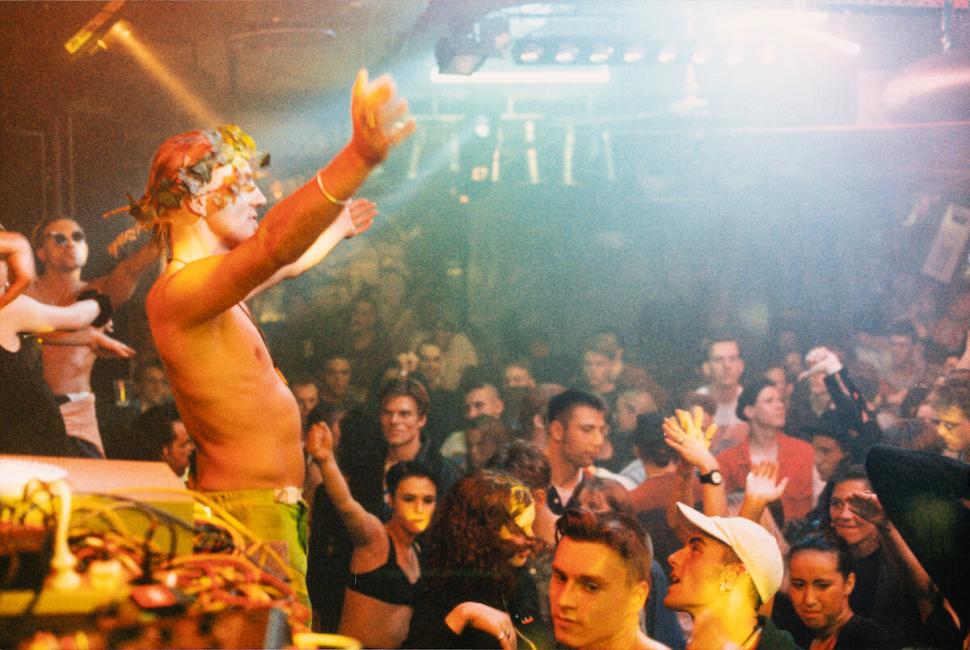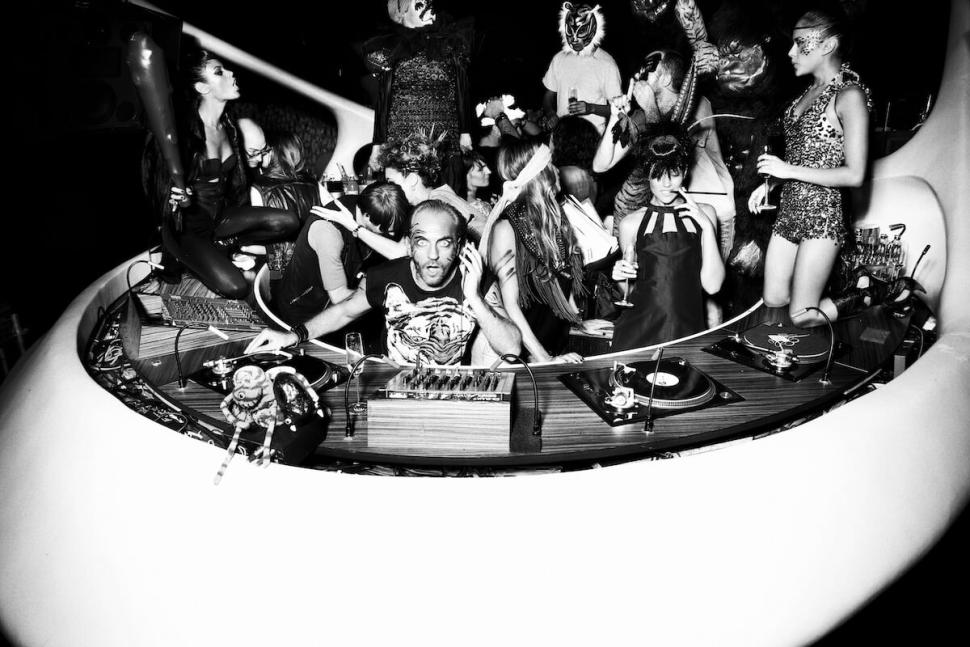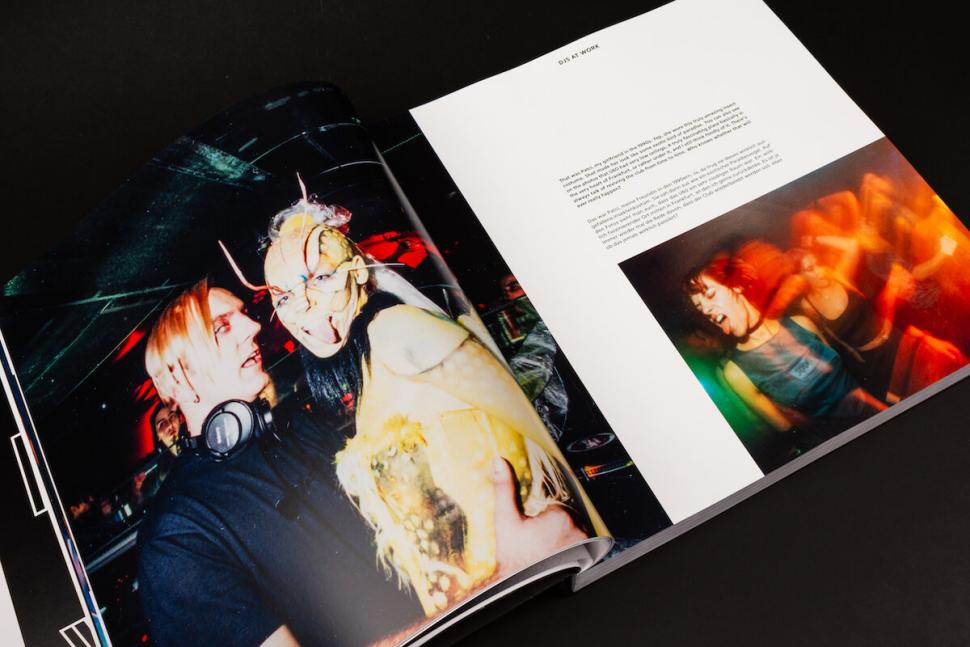Sven Väth in interview: Techno wasn’t just a genre!

Beat / In which way has dance culture changed since your time at the Omen, or, later, Ibiza?
Sven Väth / The buzz during those Ibiza After Hours was simply brilliant, people really thirsted for it. You were constantly being asked: ‘So where’s the After, when’s the After?’ It’s no longer possible in that shape and form as the club owners fear it will cannibalize their sales and will possibly therefore refuse to work with you. Not to forget, there are no longer any locations. The cops are pretty strict now. And since the pandemic it is also of course the case that an awful lot takes place only in private. Private, secret villa parties, well they’ve started to spread in recent years. Let me put it this way: There were the one or other patron who dug deep into their pockets and even paid the DJs for an After Hour, which I found kind of strange. But the idea that you could kind of play the guerilla and pop up at a beach club and say, ‘Hey, let me use the turntables, we’ll party here for a couple of hours.’ That’s no longer possible, sadly. And it’s a pity because that was a really important part of that culture and scene. Today, it’s all very commercial and professionalized.

Beat / A friend of mine recorded every single one of your Clubnight mixes on cassette—those tapes became part of the soundtrack of our lives. What do you think made this music, and the club experience at that time, so incredibly powerful?
Sven Väth / Because it was real. Because it came from a deep necessity. Techno was not just another music genre—it was a statement, an attitude, a way of life. In the late ’80s and early ’90s, clubs were sanctuaries, laboratories for new ideas, collective escape machines. And Omen was more than a club—it was a myth, a ritual, a constantly evolving organism. The energy there was raw, unfiltered, uncompromising. It was a catalyst for creative energy, a meeting point for musicians, artists, and visionaries. The focus was not just on partying, but also on experiencing and defining a new cultural movement. Those who experienced it carry that vibe with them forever.
Beat / How much of the meaning of techno and house is revealed not just by listening but by dancing?
Sven Väth / Techno and house are not just sonic structures; they are energies that move through the body, merging with space. Their true essence is only revealed through movement. Dancing is a primal form of expression, a state where thought and feeling become one. It is both liberation and surrender—to the moment, to the rhythm, to the body. Listening alone is staying on the surface. Dancing is diving in
Beat / What about its social relevance?
Sven Väth / Dance has always been a mirror of cultural and social movements, a place of identity and community. When we dance, we break away from hierarchies, from roles, from constraints—at least for a while. And therein lies the subversive power of this music. The events that took place at the Omen were more than just parties, they were experiences that shifted the bounds of reality and enabled us to immerse ourselves in a different world.
DJs as Visionaries
Beat / When you started out DJing, what were some of the most important insights you gained?
Sven Väth / The DJs of that era were more than just music lovers – they were visionaries who placed the sound of yesterday in the context of today, and in the process subconsciously shaped tomorrow. In the beginning, the Dorian Gray club in Frankfurt was my temple. DJs like Bijan Blum, Michael Münzing, and Ulli Brenner were my mentors. Their art of mixing with their smooth merges and beat cutting, their manipulation of filters and equalizers opened my eyes to the infinite opportunities music offers.
Beat / What does it mean to be a “good DJ”?
Sven Väth / A good DJ understands the room, the people, the flow of the night. It’s not just about technique—it’s about perception. Knowing when to build tension, when to release. When to swim against the current and when to surrender to it. And you don’t improve through repetition alone; you grow by constantly pushing beyond your own limits, by rediscovering, by unlearning. Stagnation is the enemy.

Beat / Why has DJing remained so inspiring for you after all these years?
Sven Väth / Because it’s a living dialogue. A DJ set is not a fixed composition; it’s a fluid structure that takes shape in real time. Every night is different, every audience brings a unique energy, every space has its own acoustics, its own history. DJing is intuition, reaction, anticipation—a constant navigation between control and surrender. The magic lies in the unpredictability. And there is nothing quite like the moment when everything aligns, and the entire room becomes a single pulsating entity.
Beat / What are your thoughts on back-to-back sets, interactions with live musicians, or other ways to turn DJing into a more collective process?
Sven Väth / DJing is often a solitary craft. But there are moments when a second energy opens new paths. Back-to-back sets can be a playful, almost telepathic experience—if the chemistry is right. Live interactions, on the other hand, introduce an element of unpredictability, a rawness that makes the moment unique. The magic lies in the right balance between structure and chaos.
Stories and Resonance
Beat / When you dig for music, what are you looking for? Is it purely about taste, or is it about going beyond taste?
Sven Väth / Taste is just the starting point. I look for resonance. For music that moves me, that surprises me, that forces me to think differently. It’s not about collecting—it’s about finding stories that want to be told.
Beat / How would you describe the interaction with audiences and dancers during a gig—and what does it feel like?
Sven Väth / A gig is a silent conversation. No words, just signals, waves, impulses. You read the body language, the intensity of movement, the flicker in the eyes. And sometimes, there’s this moment when everything syncs—that’s the peak.

Beat / How does the experience change when you remove the audience, as in online mixes?
Sven Väth / They're more introspective, almost meditative. You play for yourself, for an imagined listener. It’s a different kind of journey.
Beat / There are countless ways to “match” two or more tracks. How do you prefer to do it? What makes two tracks inherently compatible, and what defines a great transition?
Sven Väth / It’s about energy, timbre, the invisible space between the notes. Some tracks blend naturally, others create friction—both can be powerful when used deliberately. A perfect transition is more than just a technical process; it’s a narrative moment. It opens a portal from one state to the next.
Beat / Do you think that a DJing AI will ever be able to open this portal as well?
Sven Väth / AI can analyze, generate, predict. But it cannot feel. It has no intuition, no irrationality, no magic. It can provide tools, offer inspiration, maybe even open new perspectives. But the essence of DJing is human. It lies in empathy, in spontaneity, in imperfection. And that is something no machine can replace.
Order Sven's vinyl retrospective ...
... as well as 4 Decades Behind the Decks A Journey of Music, Magic, and Euphoria directly from Cocoon's bandcamp store.
Want more? Get more!



Subscribe to the digital edition of BEAT Magazine via Plugins-Samples.com and get more gear, in-depth workshops, reviews and 11 GB exclusive plugins and new sounds with every monthly issue!
Subscribe to Beat Magazine for only 4.99€ per month
